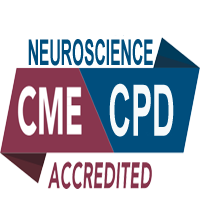
Frédéric Haesebaert
Lyon Neuroscience Research Center
Title: Involvement of the fronto-temporal network in the pathogenesis of auditory hallucinations : insights from neuroimaging and neuromodulation
Biography
Biography: Frédéric Haesebaert
Abstract
Auditory hallucinations (AH) are common and disabling symptoms of schizophrenia. Despite prescriptions including adequate pharmacological treatments, about 25% of patients still experience refractory AH symptoms. This epidemiological fact supports the urge need of understanding AH and developping new treatement strategies. Indeed, the pathophysiology of AH is complex and still partially unelucidated. In clinical terms AH correspond to "true" auditory perception in the absence of an auditive stimulus. In a neuropsychological perspective, they are commonly related to a lack of cognitive control over the hearing function. This lack of control leads to perception of self-generated events misattributed to someone else. We present here key findings on brain networks supporting hearing and speech perception involved in the pathogenesis of AH symptoms, drawing perspectives for new treatements. Indeed, our team’s research includes studies at the clinical, neuropsychological and neurophysiological level highliting the role of fronto temporal networks in AH generation. First we will briefly review data of the literature assessing the involvement of temporal and frontal lobes in AH and their pathological interactions with other brain structures in schizophrenic patients with AH. Then we will show how transcranial current brain stimulations (tCS) of fronto temporal network can induce a clinical reduction of AH. Finally we will focus on the mechanisms of action of AH improvement with tCS, investigating biological markers of response.

